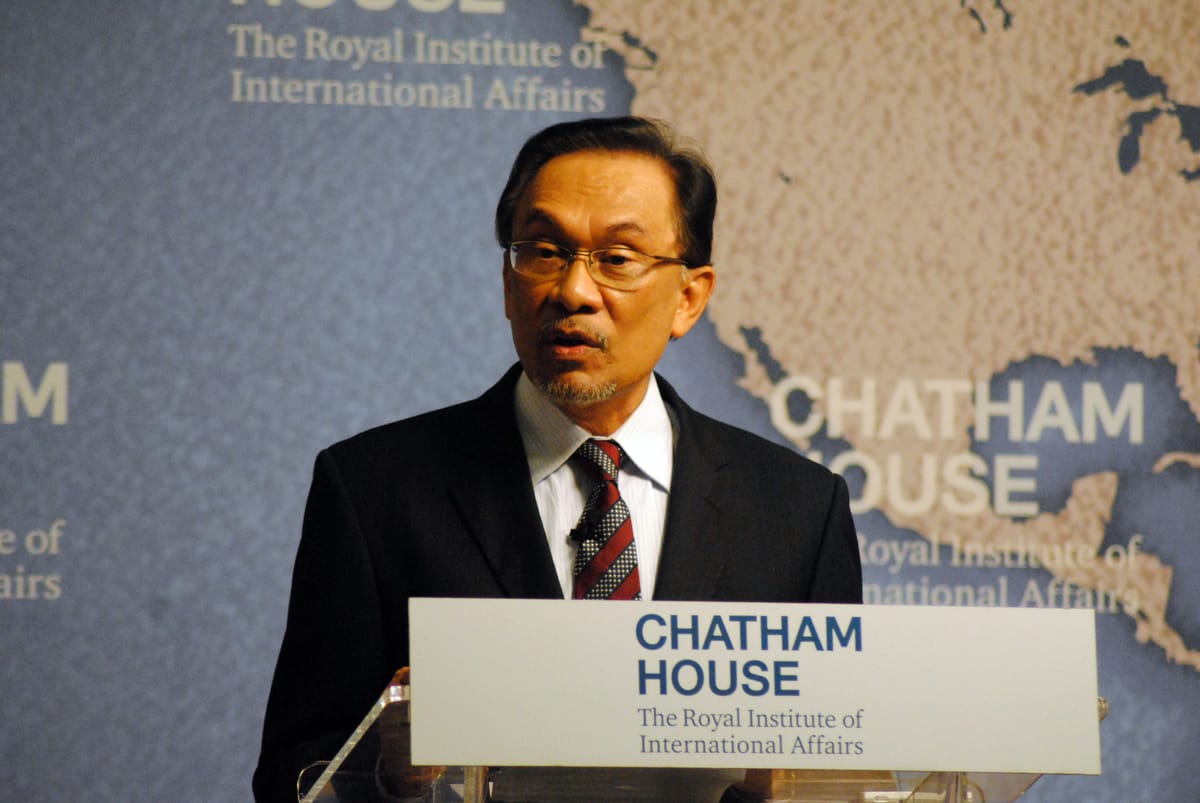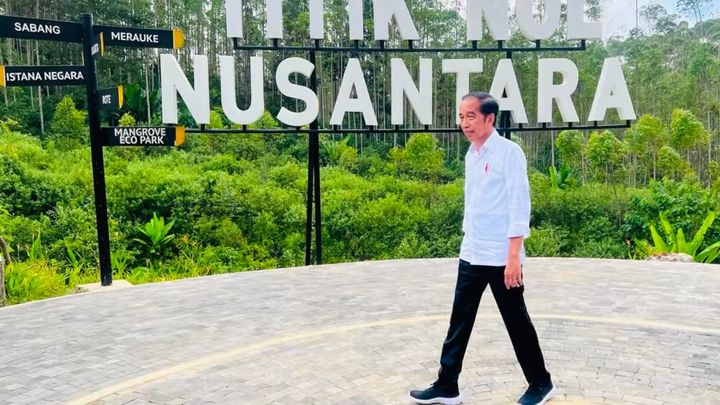Malaysia's 2023 Budget Breakdown
Prime Minister and Finance Minister of Malaysia Dato' Seri Anwar Ibrahim, recently delivered a speech regarding the re-tabling of the budget for the incoming fiscal year. Economic recovery and stability for Malaysia are more essential now than ever.

Prime Minister and Finance Minister of Malaysia Dato' Seri Anwar Ibrahim, recently delivered a speech regarding the re-tabling of the budget for the incoming fiscal year, titled "Budget 2023: Belanjawan MADANI".
Pillar 1: Inclusive and Sustainable Economy
Taxes and Subsidies
In efforts to eradicate extreme poverty, the new budget proposes increased tax rates and electricity tariffs for higher-income earners and large corporations respectively. A Luxury Tax will also be launched, taxing high-end fashion items. Simultaneously, there are implications of 'targeted subsidies' for the 'less fortunate', as well as a reduction in the tax rate from 17% to 15% for enterprises that earn up to RM150,000. Additionally, RM50 million will be allocated towards upgrading hawker centres and stalls nationwide.
Showcasing an increased concern for the setbacks faced by disadvantaged communities, the government has pledged to provide RM300 million to support small businesses, particularly those owned by women and youths. An additional RM330 million will be allocated towards business programmes for underprivileged youths.Due to the economic duress faced by Malaysian citizens, the government has deemed that it is an unsuitable time to re-introduce the Goods and Services Tax (GST).As part of the Generational Endgame initiative (GEG), which regulates smoking-related products, such as cigarettes and e-cigarettes, taxes on nicotine composites used in e-cigarettes and vapes will be imposed, half the revenue of which will be redistributed into the Ministry of Health.
Disaster Management and Environmental Conservation
By June 2023, 6 Flood Mitigation Projects will be proposed, including mitigation plans and the construction of new reservoirs. A total of RM150 million will be given to the National Disaster Management Agency to be spent on warning systems and disaster relief, with a further RM50 million given to armed forces and fire departments to aid in responding to such disasters. A total of RM238 million will be devoted towards biodiversity preservation, plus an additional RM2.15 billion towards investments in greener technology.
Increasing Investments
The New Investment Policy will be revisited, which attempts to increase the rate at which investment projects are approved, as well as to incentivise local councils to implement such projects. In order to increase 'local talent' to attract foreign investors, the government is providing 1,000 engineering scholarships annually to Malaysians studying in Japan, Korea, France and Germany.In the case of revitalising the business and tourism industry, the government aims to support the growth of the Penang International Airport, the Subang International Airport, and numerous ports in Perlis and Selangor.
Pillar 2: Institutional Reforms
Government Transparency
The Government Procurement Act, which encourages greater government accountability, is expected to be tabled later this year. It was originally proposed by the 2019 government. The 2010 Whistleblower Act will also be revisited, with amendments to enhance the protection of informants who aid in the elimination of corruption.
Public Maintenance
The government has given RM1.2 billion to 'urgently' restore around 400 neglected or unmaintained schools and clinics. Additionally, RM4.2 billion will be devoted towards the construction, maintenance, and improvement of both Federal and rural roads.
Adapting to Change
Launching a Special Task Force on Agency Reform (STAR) will aid ministries in adapting to modernity, including utilising more advanced technology and progressive solutions.
Social Issues
RM10 million will be allocated towards improving the National Scam Response Center (NSRC), and the National Bank will introduce a 'kill switch' that allows users to immediately freeze their assets.The government also pledges to revise the 1967 Insolvency Act, which dictates the details and procedures of citizen bankruptcy. The government is committed to monitoring and helping the reintegration of former prisoners into civil society. The Skill for Inmate Programme will provide training to former prisoners, in tandem with RM10 million to employ inmates in the agricultural industry.The Royal Malaysian Police will be tasked with more thorough investigations of sexual abuse and child pornography. The government will also aim to assist in the provision of free legal services for underprivileged communities.
Prevalent in the female community is the issue of maternity leave. Thus, the Social Security Organisation will provide a grant of 80% of the mother's salary to cover the cost of childcare as women return to work. The government will also prioritise the development of nurseries and childcare centres.
Improving Public-Private Partnerships
Front-running private companies will be delegated industries to assist in training programmes for young Technical and Vocational Education and Training (TVET) graduates in employment while ensuring such graduates are paid an appropriate salary that corresponds with their qualifications by providing monetary incentives to employers who hire TVET graduates, disabled people, ex-convicts, and other disadvantaged communities.
At the same time, the government will engage in upskilling programmes for youths to 'earn a more meaningful salary'. Additionally, the government will encourage local workers to be employed in the plantation industry by devoting RM50 million to improving technology.
The Digital Agenda
The government will allocate RM100 million towards equipping small businesses with the tools and knowledge of digitalisation.
Pillar 3: Combating Inequality
Eradicating Poverty
RM750 million will be funnelled towards The People's Income Initiative (IPR), which aims to increase the 'income potential' of impoverished citizens, as well as RM2.5 billion in welfare aid. In Sabah and Sarawak, poverty eradication will take the form of a new initiative to see some of the petroleum revenue spent on such programmes.
The Cost of Living Crisis
The government will provide RM64 billion in financial assistance to manage the cost of living, via price controls and the provision of essential services.
New schemes implemented by the government will also include selling meals at a low price to those in need (Menu Rahmah Initiative), setting the price of essential goods at 30% cheaper than their market value (Jualan Rahmah Initiative), and cash assistance of up to RM3,100 (Sumbangan Tunai Rahmah Initiative).
The Agricultural Sector
In addition to subsidising the paddy and rubber industry, the government also plans to enhance Malaysia's food security by creating a sustainable agricultural market. This includes financing training and technology in order to increase the productivity and competitiveness of the state's commodities.
Fighting Prejudice
RM50 million will be allocated towards the pursuit of unity and 'social integration' in the multi-ethnic society, as well as an additional RM50 million devoted towards the upholding of non-Muslim places of worship.
Sabah and Sarawak
In order to combat the disparity faced between Peninsula Malaysia and East Malaysia, the government has pledged a total of RM12.1 billion towards the continued development of infrastructure and facilities in Sabah and Sarawak. There are also plans to accelerate the Sabah Pan Borneo Highway and the Sarawak-Sabah Link Road construction.
Transportation, Education and Healthcare
The government will continue its efforts to expand and improve the public transportation service nationwide while allocating RM209 million towards flights to rural Sabah and Sarawak.
The highest percentage of the Budget is devoted towards the Ministry of Education, at RM55.2 billion, and the Ministry of Higher Education, at RM15.3 billion, including improvements, maintenance, and construction of schools and higher education institutions. Additionally, the government plans to provide 50,000 laptops to schools nationwide in order to fulfil their end of the 'Digital Agenda'.
Second to the Ministries of Education and Higher Education is the Ministry of Health, which was allocated RM36.3 billion. A priority on the agenda is to ensure employees in the medical industry receive permanent employment. Of the allocated funds, RM120 million will go towards funding underprivileged citizens' treatments at private clinics, with an additional RM80 million towards regular health check-ups and screenings for the B40 group.
Conclusion
The 2023 Budget for Malaysia has been approved at the policy stage, awaiting debates on March 28. In general, the budget prioritises low-income communities and bridging the gap between the B40, M40 and T20. Sebastian Strangio notes that Anwar's 'focus on rice-bowl issues', which transcends 'ethnic and religious lines', may garner him support from Malay voters. With the Malaysian state elections quickly approaching, Dato' Seri Anwar's 2023 Budget Proposal may prove to be a tool that stabilises his jurisdiction over the new Unity Government.
Watch the full 2023 Budget speech here.
by Ashvini Prem
Disclaimer: The views expressed in this article do not necessarily represent those of The PublicAsian.





Comments ()